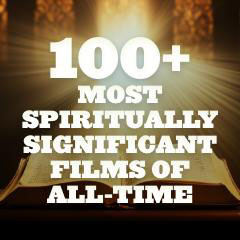
|
Top 100 Spiritually-Significant Films Introduction and Part 1 |
|
The original list of 100 films was created by an online discussion group comprised of film critics and other movie buffs that was first announced in mid-2004, and has now been updated through the year 2020. Every year since 2004, additional films were added to the list (and others were dropped), comprising approximately 100 more films that were deemed equally significant. Facts and Commentary About the List:
The "Arts & Faith" website and participating sites described the selection of films and what qualified a film to make the list. Rather than using words such as "moral," "religious," or "Christian," it gave these descriptors: (1) a film that evoked "spiritual contemplation," and (2) a film that had particular relevance for one's "moral and spiritual development." The list has been continually updated and changed.
|
||||

|
(Part 1, ordered alphabetically by original title with year of release and director) |
|
1. 13 Conversations About One Thing,
2001, Jill Sprecher
About the loosely-connected lives of a group of New Yorkers: Troy (Matthew McConaughey) - a smug, hot-shot lawyer, Gene (Alan Arkin) - a fatalistic and bitter insurance adjuster, Beatrice (Clea Duvall) - a beatific housecleaner, Walker (John Turturro) - a college physics professor with a failed marriage to Patricia (Amy Irving), and the people around them who intersect as they ponder fate and how to achieve happiness in the face of life's cold unpredictability and senselessness. |
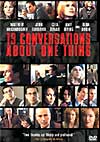
|
|
2. 2001: A Space Odyssey, 1968, Stanley Kubrick The rudiments of a plot are scattered throughout 2001, signaled by the appearance of a gleaming black monolith at key intervals. It first appears, brimming with significance, amidst a clan of Pleistocene era ape-men that have just learned how to use the bones of their ancestors to clobber neighboring pedigrees. Again we see it poking through the dust of the moon, signaling space travel-era mankind toward a point in the darkness just around the lip of Jupiter. It is between this appearance and the next that the film spends most of its time, as we track the journey of three scientists sent to investigate the terminus of this galactic vibrato. During this movement of the film, we meet Drs. Bowman and Poole, and HAL 9000, the impeccable computer directing their extended flight. The chamber drama that unfolds between these voyagers fated with all the tension of a Greek epic plays out with alarming precision until the third appearance of the monolith. Here we find Bowman, in a fulfillment of every possible science-fiction fantasy, hurtling through flickering panes of light toward a baffling sequence of set pieces that have haunted film culture ever since. |

|
|
3. The Addiction, 1995, Abel Ferrara In an unusual twist of the vampire genre, The Addiction uses the bloodlust of the undead as an original metaphor for original sin and mankind's ultimate addiction to evil. Kathleen Conklin (Lili Taylor), an NYU doctoral student in philosophy, finds herself with a new perspective on the nature of ultimate evil and redemption after being bitten by a vampire (Annabella Sciorra) in New York City as she walks home one night. |

|
|
4. Amadeus, 1984, Milos Forman A fictional take on the lives of classical composers Mozart and Salieri, Amadeus is narrated to a priest by what appears to be either a self-confessed murderer or a complete lunatic. F. Murray Abraham eats up the screen as Antonio Salieri, a cold, calculating, hungry, jealous fellow who seems obsessed with trying to write music for God. But it’s only in Mozart (Tom Hulce) that he sees a man being used by God in order to speak to people through music, and he covets Mozart’s talent so badly that it begins to drive him mad. Also, Salieri does not just grow to hate Mozart because of his musical God-given gift; he also is repulsed by what he considers to be a childish, vulgar, and irreverent man "with an obscene giggle." Salieri demands to know why God would give this foolish little man genius, and the answer to his question rests at the heart of the film. |

|
|
5. American Beauty, 1999, Sam Mendes American Beauty looks at the quietly-desperate and miserable suburban and materialistic life of Lester Burnham (Kevin Spacey) who finds himself in a classic mid-life crisis, although living the American dream with real estate wife Carolyn (Annette Bening). Lester begins to question whether things have to be the way they are, after meeting his daughter Jane's (Thora Birch) cheerleader best friend Angela (Mena Suvari). |

|
|
6. Andrei Rublev, 1966, Andrei Tarkovsky Andrei Rublev charts the life of the great icon painter (Anatoli Solonitsyn) through a turbulent period of 15th Century Russian history. Eight acts follow Rublev through the political and social upheavals of medieval Russia. As famine, the Tartars, and torture prevail, Rublev loses all sense of artistic purpose and comes to renounce his voice, his faith, and his art. |
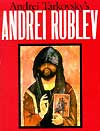
|
|
7. The Apostle, 1997, Robert Duvall Robert Duvall, in a virtuoso performance in a multi-faceted film, portrays Euliss “Sonny” Dewey, a Southern Pentecostal preacher whose stable domestic life crumbles after committing a crime of homicidal jealousy when he discovers that his wife (Farrah Fawcett) is unfaithful. He leaves Texas, gives up his identity, calls himself "The Apostle E.F.", and takes up radio preaching in the Louisiana town of Bayou Boutte. His whole life, often succumbing to sensuality and fits of violent anger, is ultimately redeemed when he faces his sinful past. Disturbing but thought-provoking depiction of spiritual crisis. |
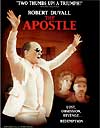
|
|
8. Au Hasard Balthazar, 1966, Robert Bresson Balthazar tells the wrenching, visually-told story of the life and death of a donkey (a "dumb animal") named Balthazar and the French country girl who grows up with him, Marie (Anne Wiazemsky), the rebellious daughter of a schoolteacher. His idyllic childhood turns to a burdened life of hardship as a laboring beast when he changes owners over the years, as he stoically observes human life around him - his life is paralleled in the painful, cruel lives of the villagers. |
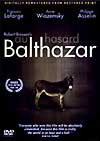
|
|
9. Babettes Gæstebud ("Babette's Feast"), 1987, Gabriel Axel Adapted from Isak Dinesen's short story, Babette’s Feast is a feast in itself, for the heart, the senses, and above all for the spirit. Winner of the Best Foreign Film Oscar, the film’s deceptively simple story is about a Parisian culinary genius named Babette (Ste'phane Audran) - with a secret - who is taken in by two aging sisters, Martina (Birgitte Federspiel) and Philippa (Bodil Kjer), daughters of a now-deceased Protestant minister on the isolated Jutland coast of Denmark. |
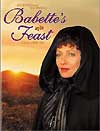
|
|
10. Bad Lieutenant, 1987, Abel Ferrara An NC-17 rated film about a debased, nameless police Lieutenant (Harvey Keitel), a lapsed Catholic, who investigates homicides, and has various 'bad' vices including compulsive gambling, drug use, and cavorting with prostitutes. The film has an almost biblical structure, set in New York during the seven games of the World Series between the Dodgers and the Mets. When he investigates the brutal rape of a young nun by a couple of neighborhood youths on her Spanish Harlem church altar, and she refuses to identify her attackers, the corrupted and defiled cop examines his own life and commits an act of self-redemption and forgiveness. |
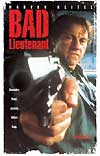
|
|
11. Bad ma ra khahad bord ("The Wind Will Carry Us"), 1999, Abbas Kiarostami A busy video producer/engineer from Tehran named Behzad (Behzad Dourani) drives with a camera crew of three to a remote hillside Kurdish village in Iran to capture an obscure, ancient burial ceremony for a soon-to-die 100 year old woman named Mrs. Malek. But the 'subject' of his film doesn't die, forcing the impatient man and his production crew to slow down, linger in the serene village, and mingle with the local families and understand more fully their simple values. |
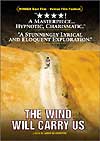
|
| The Bicycle Thieves, 1948, Vittorio De Sica - see Ladri di biciclette | |
|
12. The Big Kahuna, 1999, John Swanbeck This film is a compelling dialogue between three men, Larry and Phil (Kevin Spacey, Danny DeVito) - two industrial lubricant salesmen and a younger, naive, and earnest first-time sales member (Peter Facinelli), who are sent to a trade convention to make a company-saving sale to Mr. Fuller - the president of a large manufacturing company. The three sales reps wait in a hospitality suite of a Wichita hotel for the big man ('kahuna') who will change their lives. |
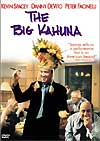
|
|
13. Blade Runner, 1982, Ridley Scott An intelligent and terrifying vision of the future, Blade Runner is based on Do Androids Dream of Electric Sheep?, the Philip K. Dick novel about the essence of what it is to be mortal, and the urge to confront one’s creator with questions about human imperfections and the inevitability of death. |

|
|
14. Breaking The Waves, 1996, Lars von Trier Manly oilman Jan (Stellan Skarsgard) becomes paraplegic after an accident. His newly-wed, pious wife Bess (Emily Watson), who prayed for his return to the Scottish coastal village in the early 1970s, feels guilty; even more, when Jan pleas with her that the only thing that will give him the will to live, is if she takes lovers and then describes the sex to him. |
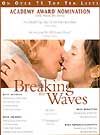
|
|
15. Changing Lanes, 2002, Roger Michell A taut, film noirish psychological thriller about what happens one day in New York when hotshot young Wall Street lawyer Gavin (Ben Affleck) and struggling insurance agent Doyle (Samuel L. Jackson) have an automobile fender-bender on F.D.R. Drive. In Gavin's haste, he leaves Doyle stranded on the highway, causing the estranged middle-class family man to miss attending a hearing (hence being denied custody rights to his two young sons) -- although Gavin leaves an important file at the accident scene that has been pocketed by Doyle. |
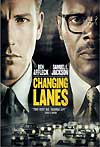
|
|
16. Chariots of Fire, 1981, Hugh Hudson Chariots of Fire, based on the story of British Olympians Harold Abrahams and Eric Liddell, won the Academy Award for Best Picture in 1981. The film stretches the boundaries of both the biopic and sports genres as it presents a series of vignettes from the lives of these two athletes in the years and months leading up to the 1924 Olympic Games in Paris. As an athlete and a Jew, Abrahams strives to find acceptance at Cambridge University while Liddell struggles to reconcile running with the dictates of his Protestant faith. Director Hugh Hudson filmed and edited most of the running sequences to emphasize the internal struggle of the runners rather than the drama of the races themselves. The film’s soundtrack, by Vangelis, is one of the most recognized of all time. |
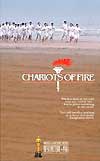
|
| Close-Up 1990, Abbas Kiarostami - see Nema-ye Nazdik | |
|
17. Code inconnu ("Code Unknown"): Incomplete Tales of Several Journeys, 2000, Michael Haneke This film about intolerant racism and hatred, Austrian director Haneke's first French language feature film, includes in its subtitle "incomplete tales of several journeys" of individuals with social and moral crises. The fragmentation of society and the isolated lives within it are at the film’s central themes—regardless of the social or economic status of the individual. The film - composed of 10-minute vignettes, opens when a sullen French farm youth (Alexandre Hamidi) throws a bag of half-eaten pastry onto the lap of a beggar woman at a crowded Paris shopping center - this sets off a chain reaction and street scuffle. A well-meaning African French teacher of deaf children, Amadou (Ona Lu Yenke) orders him to apologize, and the pair fight. The youth gets off scot-free, but the teacher is arrested and the Romanian refugee woman Maria (Luminita Gheorghiu) faces deportation. The film then branches off and expands into a multi-form narrative of other tales, including another story about French actress Anne (Juliette Binoche). |
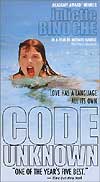
|
|
18. Crimes And Misdemeanors, 1989, Woody Allen Two films in one: opthalmologist Judah Rosenthal (Martin Landau) has had an affair with unstable Dolores (Anjelica Huston) for several years, and now she threatens to ruin his life and tell his wife (Claire Bloom) if he doesn't marry her. When his brother Jack suggests to have Dolores murdered, Judah is faced with a big moral dilemma: allow the destruction of his life by coming clean, or hire a hitman and murder his mistress?....And documentary filmmaker Clifford Stern (Woody Allen), in romantic love with stammering Halley Reed (Mia Farrow), a PBS producer, is commissioned to make a portrait of successful but despised Hollywood TV producer and brother-in-law Lester (Alan Alda). |

|
|
19. Days of Heaven, 1978, Terrence Malick Terrence Malick’s 1978 story of adultery on the Texas Panhandle is set just before World War 1, but it resounds with echoes of Old Testament drama. Blast-furnace worker Bill (Richard Gere) gets in a fight with his foreman, then goes on the run with his girlfriend Abby (Brooke Adams) and little sister Linda. They settle as field workers for a rich farmer (Sam Shepard), who eventually falls for the irresistibly beautiful Abby. Bill sees this as an opportunity to get rich not-so-quick. And his plot is the first step toward violence, which blazes up in a conflagration that may be the greatest inferno ever filmed. Captured indelibly by cinematographers Nestor Almendros and Haskell Wexler, Malick’s film has a visual syntax so eloquent and graceful—its fields of gold cause its quiet characters to stand out like mythic figures—it would play powerfully as a silent film...But the poetic narration by young Linda is endearing, and it keeps the goings-on from becoming too ponderous. |
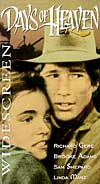
|
|
20. Dead Man Walking, 1995, Tim Robbins Compelling exploration of issues surrounding the death penalty, based on the true story of idealistic Catholic nun, Sister Helen Prejean (Sarandon, Robbin’s wife), who spiritually advises, compassionately comforts and saves the soul of convicted murderer Matthew Poncelet (Sean Penn) at Louisiana's Angola State Prison, who killed a pair of teenaged lovers. She emphathizes with both the victim's family and the killer's mother. She asks him to visualize her as he dies in the execution chamber -- "I want the last face you see to be the face of love." |

|
|
21. Dekalog ("The Decalogue"), 1987, Krzysztof Kieslowski Ten one-hour television dramas made for Polish TV, each one a modernized, free-standing part based on one of the Ten Commandments. Their themes include compassion, lust, fidelity, revenge, love, betrayal, death, idolatry, ethics, incest, adultery, and trust. The ten episodes are linked by a common setting, a Warsaw high-rise apartment complex where all the characters live (an early establishing shot perhaps suggests the Tower of Babel), and also by the occasional overlapping of characters from one episode into another. There is also an enigmatic, silent observer whose presence in nearly all the episodes suggests some symbolic role. |
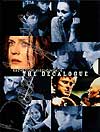
|
|
22. Dersu Uzala, 1975, Akira Kurosawa A joint Soviet-Japanese production, told in flashback - a deeply affecting portrait of nature, friendship, and survival - about a Russian army surveyor, Captain Arseniev (Yuri Solomin) who is rescued in Siberia by a rugged, nomadic, native Asiatic, aboriginal (Goldi) tribesman hunter (Maksim Munzuk, in the title role) - in 1901. They renew their friendship years later when the explorer returns at the head of a larger expedition. Later, the hunter accompanies the explorer back to civilization with a crushed spirit - where all of his nature lore is of no help to him - providing the film's cautionary advice about how western civilization lacks respect for nature. |
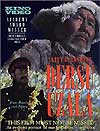
|
| The Diary of a Country Priest, 1951, Robert Bresson - see Le Journal D'un Curé De Campagne | |
|
23. Dogma, 1999, Kevin Smith A thoughtful, ambitious and unique film - starring two fallen angels Loki and Bartleby (Matt Damon and Ben Affleck) who are cast out of heaven for misdeeds. After 2,000 years in exile in Wisconsin, the two renegades have discovered a loophole in church dogma that may allow them back into heaven, if only they can pass under the arch at a Catholic church in New Jersey. Bethany Sloane (Linda Fiorentino), a bitter abortion doctor, is chosen by God to stop them from crossing that threshold, since their return would prove God was fallible. She is assisted by Metatron (Alan Rickman), the voice of God, Rufus (Chris Rock), the ignored 13th apostle, Serendipity (Salma Hayek), a muse-turned-stripper, and the Jay and Silent Bob (Jason Mewes and Kevin Smith) duo. |
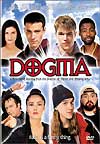
|
|
24. Dogville, 2003, Lars von Trier A beautiful fugitive, Grace (Nicole Kidman) fleeing her past, arrives in the isolated, Rocky Mountain Colorado township of Dogville on the run from a team of Depression-era mob gangsters. With some encouragement from Tom Edison, Jr. (Paul Bettany), the self-appointed town spokesman, the little community reluctantly agrees to hide her. Later, when a "Wanted" poster of Grace is tacked up and searches occur, everyone’s accepting attitude changes and the townsfolk's demands become more arduous, mean and dangerous. Dogville is a huge crescendo of a film, ending on the grandest scale possible, a Shakespearean-style tragedy of Biblical proportions that's willing to swallow whole anyone that gets in the path of Grace. |
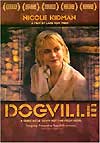
|
|
25. La Dolce Vita, 1960, Federico Fellini Marcello Rubini (Marcello Mastroianni), a young playboy and celebrity gossip columnist/journalist, spends his days between celebrities and rich people, looking for decadence in parties and sex. When an alluring Hollywood film star named Sylvia (Anita Ekberg) comes to Rome, he contrives to meet her, and when he does - at the Trevi Fountain, he is totally charmed by her. |
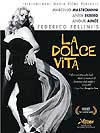
|
|
|
|